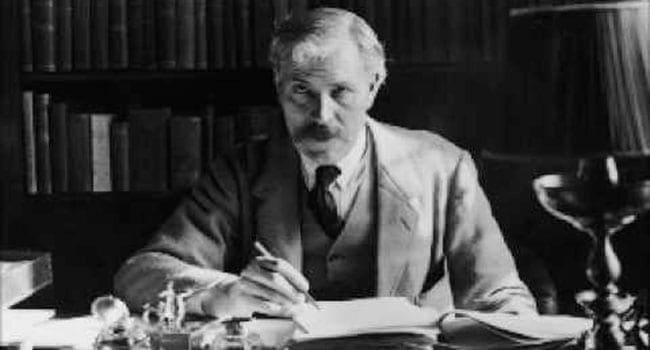 Sorting through the post-mortems on the recent U.K. election, I came across an interesting Sunday Times piece from the English novelist/journalist Robert Harris. In it, he made reference to the pariah status of two former British prime ministers – Ramsay MacDonald and Tony Blair.
Sorting through the post-mortems on the recent U.K. election, I came across an interesting Sunday Times piece from the English novelist/journalist Robert Harris. In it, he made reference to the pariah status of two former British prime ministers – Ramsay MacDonald and Tony Blair.
Unless you’re something of a history buff, MacDonald’s name probably rings no bells. But he was a very big man in his day.
Born out of wedlock in 1866 Scotland, MacDonald was instrumental in the development of the parliamentary Labour Party, becoming the U.K.’s first Labour prime minister in 1924. Although that particular spell in power was brief – a mere nine months – Labour and MacDonald were back in office following the 1929 general election. However, courtesy of the Great Depression, disaster was just around the corner.
Faced with a run on the pound, MacDonald formed a cross-party coalition, dubbed the National Government, in August 1931 and moved to deal with the crisis by cutting public spending. But while he had support from Conservatives and Liberals, the Labour party split and most of its MPs went into opposition. And to top it all off, the attempt to defend the pound was futile. Within a month, Britain abandoned the gold standard and the currency lost 30 percent of its value.
Initially, though, the politics seemed to work. In the October 1931 general election MacDonald’s National Government was overwhelmingly re-elected and the Labour opposition was correspondingly decimated. However, it was downhill from there.
Although MacDonald continued as prime minister until 1935, he became increasingly irrelevant personally. The government he nominally led was overwhelmingly Conservative – the Tories having won 55 percent of the vote – and his own mental health deteriorated. When he died en route to America in 1937, he was an isolated figure, reviled as a traitor in Labour circles.
Tony Blair’s story, on the other hand, is both recent and familiar. At one point, it seemed as if he could do no wrong. As one of the main architects of New Labour, he won three consecutive majority governments, a post-war electoral feat that’s only been equalled by Margaret Thatcher. Now he’s considered politically toxic.
Blair’s major sin is his role in promoting Britain’s active involvement in Iraq. To many critics, he lied the country into war. Others take a more ambiguous view. For instance, the historian Robert Tombs describes him as having won public and parliamentary support “by arguments that were, to put it mildly, disingenuous.” What was once recognized as Blair’s great talent – the ability to smoothly navigate the modern media world – is now perceived as mere glibness or addiction to spin at best, and malignant dishonesty at worst.
But that’s not all. Rather than offer up the mandatory 21st century apology, heartfelt or otherwise, Blair continues to insist that he did the right thing. And when you stir in the fact that he’s been on a personal money-making mission since leaving office you’ve all the ingredients for first-class pariah status.
Betrayal triggers powerfully negative emotions, and, fair or unfair, both MacDonald and Blair are deemed guilty. An erstwhile poor boy, MacDonald allegedly became a traitor to his class, selling out the Labour Party to advance his career. As for Blair, he’s accused of having become an American poodle, and in the U.K. Labour catechism that’s about as big a sin as you can commit.
However, if all of this is a personal tragedy for Blair, it’s also a problem for Labour. In the aforementioned Times piece, Harris put his finger on the difficulty, noting that “the insights he brought to politics are so contaminated by association that they can nowadays barely be mentioned.” Put simply, by turning Labour into a centre-left rather than a left-wing party, Blair made it electable again. And by subsequently rejecting the New Labour ethos, the party has reverted back to loser status.
We Canadians don’t really have similar pariahs. Yes, R.B. Bennett had a rough prime ministerial ride during the Great Depression, sufficiently so that he retired to England in 1938 and remains the only Canadian prime minister to be buried outside the country. The antipathy, however, was at least as much on his side. As the historian John English expressed it, “Bennett never forgave Canada for failing him.”
Mind you, there’s Brian Mulroney. But that’s another story entirely.
Pat Murphy casts a history buff’s eye at the goings-on in our world. Never cynical – well perhaps a little bit.
The views, opinions and positions expressed by columnists and contributors are the author’s alone. They do not inherently or expressly reflect the views, opinions and/or positions of our publication.


